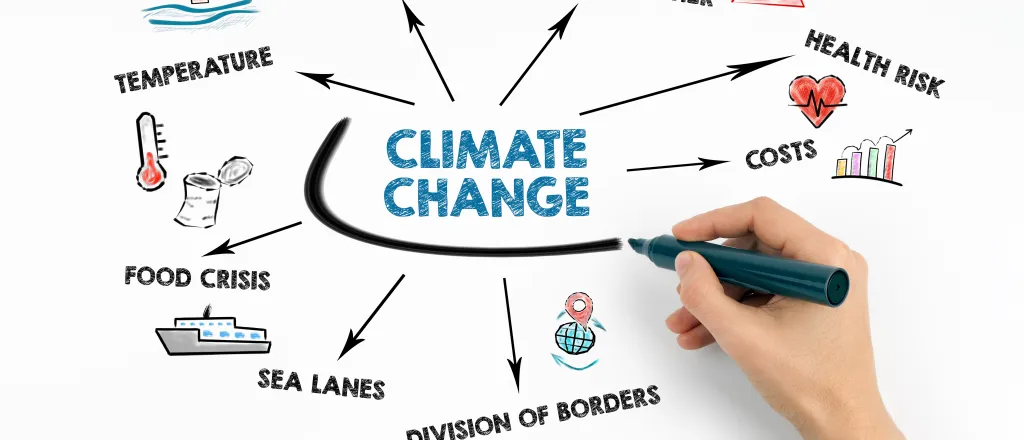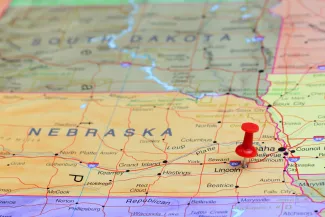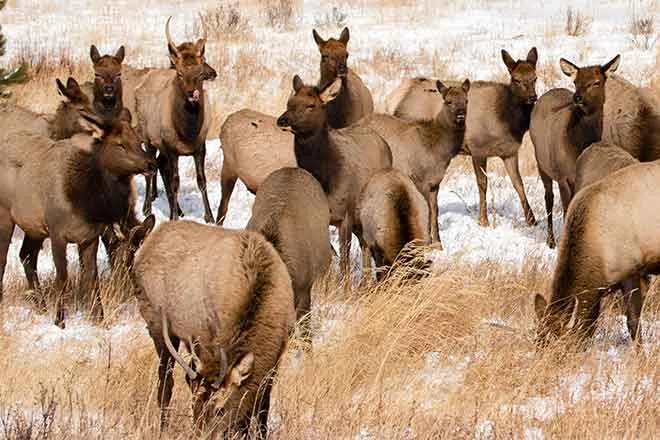
Nebraska climate report delayed to allow for ‘revisions’ and ‘further vetting’
An update of a decade-old state climate change report that was due in December is now expected to be completed in late March, University of Nebraska officials said. They rejected concerns that it was being edited to sidestep controversy.
Some environmental groups questioned the delay of a report deemed essential so that Nebraska communities and agricultural producers were not left “vulnerable” to increasingly extreme weather events and record heat.
Nebraska’s plan to assess climate change and plot strategies to help mitigate crop losses and damage from extreme weather was last updated in 2014. The Legislature approved an update in 2023 after having been reluctant earlier to devote funds to the sometimes controversial topic of climate change.
Records show report correspondence
Emails between NU officials tasked with providing the update, obtained by the Nebraska Examiner, indicated that more “revisions” and “vetting” were needed to a draft report submitted December 20 to NU’s central office.

This week, a University of Nebraska-Lincoln spokeswoman and a university lobbyist said the revisions were not designed to change the content of the report, compiled by more than 20 authorities on climate and natural resources, but to put final, clarifying touches on a 320-page document delayed by the resignation of a state climatologist.
“There’s some serious editing that needs to be done,” said UNL spokeswoman Leslie Reed said Wednesday. “It’s kind of a big bulky thing. I think they’re trying to make it more readable.”
In an email Thursday, Matt Blomstedt, a lobbyist for the NU system, said the revisions were not about changing “scientific findings” in the report, though he had questions about a segment on “the role of religion, responsibility (of) society, and such” in climate change. The source of public opinion polls used in that section was unclear, he said, and it was also unclear if conclusions were those of the author or those of the polling.
Blomstedt characterized the needed revisions as “minor” and mostly about making sure that summary pages matched research in the overall report. Reed rejected concerns that the revisions were an attempt to avoid controversy.
“It is a sensitive topic, and they want to be careful that this report is done right,” Reed said. “A lot of people are going to read this report.”
Legislature signed off on updating report
In 2023, the Nebraska Legislature, using COVID-19 recovery funds, allocated $150,000 to NU to contract with a “science-based third party” to provide an update to the 2014 report, “Understanding and Assessing Climate Change,” done by UNL’s School of Natural Resources.
Reed said delays in meeting the December 1 deadline for the update began when Martha Durr resigned as state climatologist in November 2023. That exit was reportedly due, in part, to pushback by some over her work to inform Nebraskans about the reality of climate change.

Durr, Reed said, had already lined up 20 lead authors to address the 11 topics targeted by the updated report, but she had only made preliminary strides before she left.
In June, Deb Bathke, a Nebraska native who had served as an assistant state climatologist in New Mexico, was appointed to fill Durr’s post formally. She then began working on the report and with a third-party consultant based in Maplewood, Minnesota, paleBLUEdot, that had been hired in March of 2024.
Reed said there just wasn’t enough time to complete the comprehensive, multi-author report by the December 1 deadline or by an extended deadline of December 31 due to the change in coordinators and the amount of work needed.
In an email response to the Examiner January 16, Bathke said “a couple of important sections” were not going to be done by December, and the university wanted to release the report in “its entirety.”
The Examiner filed a public records request January 22 with the NU central office to clarify which sections were undone and why a delay was needed.
Emails obtained a week ago indicated that Bathke had submitted the 320-page report December 20. But subsequent emails between her and Blomstedt, NU’s lobbyist, indicated “changes” and “further vetting and revisions” would be needed.
None of the emails mentioned that segments were not completed, though parts of the emails were blacked out. An NU attorney wrote that the redactions concerned “draft” material not subject to public disclosure laws.
Delay got lawmaker OK
NU officials and State Senator Eliot Bostar of Lincoln, whose legislation funded the study, agreed in late December that the report’s release should be delayed until late March, according to the emails. Reed confirmed the new target date.
In early January, meetings were scheduled between NU’s central administration, Bathke and others within the School of Natural Resources to work on the revisions, the emails indicated.
Bostar and Larkin Powell, the director of UNL’s School of Natural Resources, said they were confident that the report would be completed.
Environmental groups had questioned why it took the state so long to launch an update of its climate plan. There was also concern about whether $150,000 was adequate to assess the impacts of climate change on the state and provide steps to address it.
For instance, the City of Omaha got a $1 million federal grant to do its study — a study that also hired paleBLUEdot as a consultant.
Reed said Bathke had to request an additional $109,995 in funding from the university to complete the report. The contract with paleBLUEdot was $156,423, she said, with the rest of the funding used for faculty stipends, undergraduate assistant work, and costs of editing and graphics to publish the document.
Eleven months ago, the State of Nebraska received a $3 million Climate Pollution Reduction Planning grant from the Environmental Protection Agency. That grant, part of the Inflation Reduction Act, was intended to help state and local governments devise plans to reduce greenhouse gases.
The state’s climate plan was to complement it.

















